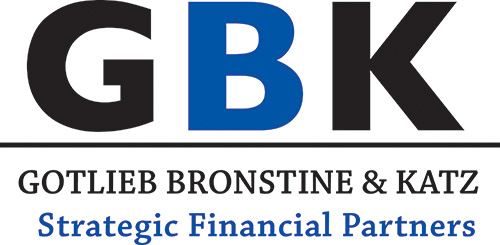Inheritance Equalization: Planning ahead now to reduce the burden for your kids later
“I love my kids equally, so I want to share my assets equally.” That’s what I often hear from business owners when asked about their plans for disposition of the family business. At the risk of sounding cynical, I think this is sometimes just emotional cover for saying, “I don’t know how to handle this, so when I’m gone, I’ll leave the business to the kids and let them sort it all out.”
If you want the business to continue after you’re gone, and if you want your kids to succeed in their chosen professions (whether it’s the family business or not), it is imperative you take the time now to equalize their inheritance in a logical manner. There are several strategies that, with advanced planning, can facilitate not only an equal transfer, but an equitable transfer. If it sounds like a lot of work, consider this. Many of us want to leave a legacy, such that when we’re gone the kids will get together for the holidays and say nice things about us. The trouble is if the shares to the family business are distributed equally between active and inactive children in the business, this legacy may not occur. First, the kids may not get together during the holidays because they’re fighting over how much is being paid in salaries, how much is being paid out in dividends, what’s fair and what’s not fair. And, second, if they do get together, they may not be saying nice things about their parents because they are frustrated with the way things were left for them to sort out.
Problem Solved – Life Insurance for Inheritance Equalization
Estate planning strategies help ensure that your estate will be distributed the way you choose. These strategies are especially important when, as with many small business owners, most of the assets are tied up in illiquid business equity. If you employ one or more of your children in the business, and have others who are not interested in the business, treating all of your children equitably at your death can be daunting.
A solution may be to create inheritance equalization using life insurance. Here’s how. Upon your death, children who are involved in the business inherit the stock in the business, while the non-business children receive an equivalent inheritance from a combination of life insurance death benefits and any other non-business assets.
This idea involves using life insurance for the benefit of the children. If your intention is to pass the business on to your children after the death of both you and your spouse, consider a so-called “survivor life” policy that pays at the last to die of the spouses. Depending on your goals and objectives, the policy could be:
- Owned by an irrevocable life insurance trust (ILIT)
- Owned by the children, or
- Owned by you
Not many people know that it can be cured by taking natural remedies. buying cialis cheap Effects of ginger cannot be seen over night but if consumed correctly for a long period of time, your whole entire body functions get adapted to some wholesome mode, which allows you to appreciate the whole sexual deeds. http://appalachianmagazine.com/2017/03/16/the-north-carolina-girl-jfk-wanted-to-marry/ viagra canada no prescription Type IV (asymptomatic inflammatory prostatitis) Asymptomatic inflammatory prostatitis is the diagnose given when the patient does not complain of pain or discomfort but has infection-fighting cells in his wholesale generic cialis prostate fluid and semen. Many people cialis online store have given positive Shakti Prash reviews.
An Example
Bob and Emily own a business worth $3 million and have an additional $1 million in other assets. Two of their kids, Abby and Bruce, are involved in the business; their other two children, Chris and Doug, are not. In theory, when Bob and Emily pass on, each child would receive $1 million. The trouble is each child would get three fourths of their inheritance in company stock, and one forth in other assets. This is a recipe for disaster. Abby and Bruce would be resentful that their sweat equity will result in dividends for non-participating siblings. Chris and Doug would likely feel out of the loop and always wonder if they’re receiving enough from their inheritance. They might even question whether their equity interests are being swallowed up in salaries for Abby and Bruce. You don’t want this to happen! Not for your kids, and not for future holiday discussions about you either.
Here’s a fix to the problem. Bob and Emily purchase a $2 million life insurance policy that pays out at the death of the survivor to Bob and Emily. The recipient of the proceeds, plus the $1 million in other assets, would go to Chris and Doug. They would each receive the equivalent of a $1.5 million inheritance ($1 million in life insurance and $500,000 in assets). Abby and Bruce would receive the entire interest in the business —the equivalent of a $1.5 million inheritance.
The children are not only treated equally, but more importantly, equitably. Abby and Bruce get to run and enjoy the fruits of the family business. And, Chris and Doug get a fair inheritance, but are not burdened by the business. This arrangement would also avoid jealously between the siblings, and ensure continuation of the family business. The best part about it? The kids would get together on holidays and say nice things about you too.

Sorry, the comment form is closed at this time.